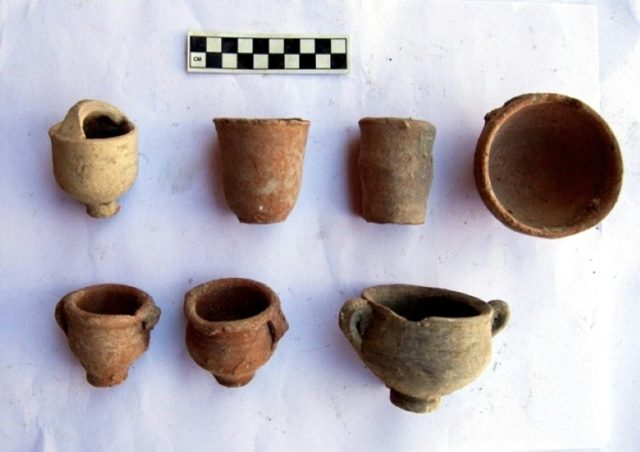Cairo (AFP) – Hundreds of ancient pottery items have been discovered in an Alexandria museum in a hiding place “most probably” created during World War II, Egypt’s antiquities ministry said Wednesday.
Pots and other receptacles dating back to Greek, Roman, Coptic and Islamic eras were discovered “during restoration work” in a garden inside the Greco-Roman museum of Alexandria in northern Egypt, the ministry said in a statement.
“These pots were most probably hidden by (British) archaeologist Alan Rowe and… employees in the museum’s garden during World War II”, Ayman Ashmawy, head of Egyptian antiquities at the ministry, said in the statement.
The artefacts were hidden to “protect them from looting or being destroyed by repeated bombardments during the war”, he said.
“The hiding process was carried out quickly without being documented or recorded on the museum’s list”, he added.
The haul includes “Hidari” cremation urns — intended for ashes during Greek times, said another official, Nadia Khadre.
“The hiding place contains a collection of pottery of different sizes and shapes”, said Khadre, head of the central department of Egyptian, Greek and Roman antiquities.
Other items include coloured pots, large dishes and tableware from the Greek, Roman and Byzantine eras.

COMMENTS
Please let us know if you're having issues with commenting.